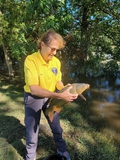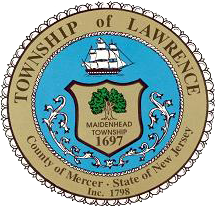Animal Control
ANIMAL CONTROLThe Animal Control Office responds to citizen complaints concerning domestic animals and wildlife, investigates animal bites and animal cruelty cases, coordinates free rabies clinics twice annually to coincide with the licensing periods for dogs and cats, and enforces state and local Animal Control Laws. The Office assists with abandoned, young wildlife, sick, injured or aggressive animals. Animal Control attempts to reunite recovered domestic animals with their owners. Meet the Animal Control Officer 
Jessica has worked as an Animal Control Officer in Lawrence Twp. since May 2021. During this time, she completed a 3-month Volunteer Technician Internship with Mercer County Wildlife Center, participated in trainings with the State Animal Response Team (SART), received a scholarship for and attended the National Wildlife Rehabilitators Association Symposium in WI, as well as completed several State animal emergency training courses. Jessica and her husband moved to New Jersey to raise their two amazing daughters. In her youth, friends and family would tell stories of Jessica handling and rescuing rattlesnakes, tarantulas, and other critters without fear. While she would say wildlife management was off the beaten path when compared to paralegal work, it ultimately prepared her for the challenges of an Animal Control Officer. In Jessica’s current, second career here encompasses the perfect balance for her love of animals and legal background. Lawrence Twp. has been an incredible journey so far, and she is proud to be working in such a great community, and hopes to continue helping the community for many years. Jessica Meyer - Animal Control Officer For emergencies after regular hours, weekends and holidays, call the Lawrence Township Police at: (609) 896-1111. Rabies
Dogs & Cats
Wildlife Resources
Miscellaneous
|



